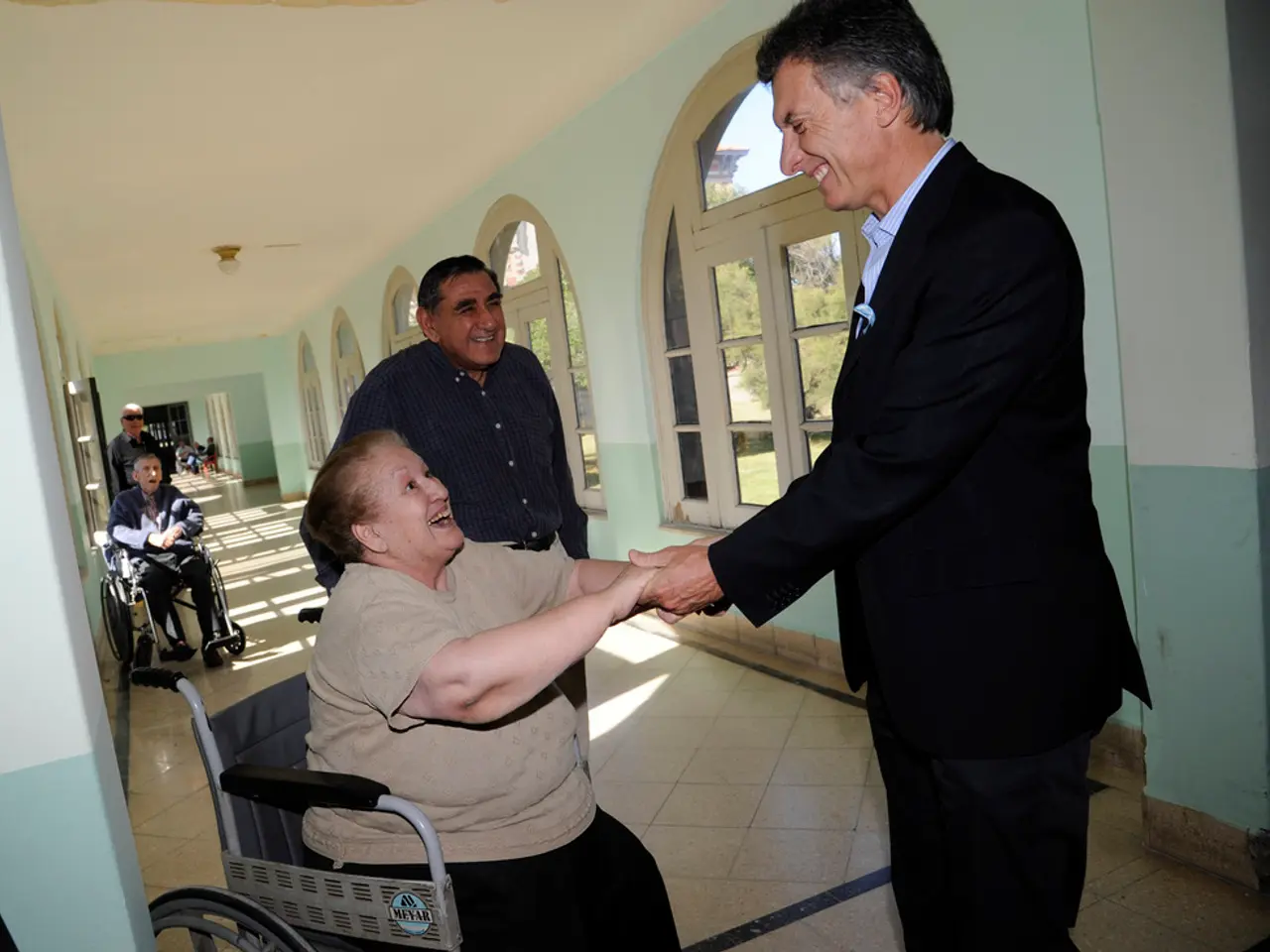Independence Day for individuals with disabilities: Fighting for Fair Access to Opportunities
Every day, we have the power to make a difference. It's not just about grand gestures, but the choices we make with our resources, time, and voice that truly matter. This belief is shared by Lauren Kim, an innovative marketing graduate and passionate writer, who is dedicated to using intentional storytelling to create change.
Lauren, who enjoys exploring new cafes, experimenting with design, and dreaming up her next meaningful project outside of blog writing and social media work, believes that even the smallest acts of giving can foster a more thoughtful and connected world.
On July 26, we observe National Disability Independence Day, a day that marks the signing of the Americans with Disabilities Act (ADA) in 1990. This historic legislation protects disabled individuals from discrimination and promotes accessibility.
To honour this day and contribute to a more accessible world, here are some small, daily actions you can take:
- Educate Yourself and Others: Learn about disability rights and the Americans with Disabilities Act (ADA). This knowledge will empower you to advocate for inclusive policies and accessible environments in your workplace, community, or school.
- Advocate for Inclusive Policies: Support the independence of people with disabilities by advocating for inclusive policies and accessible environments. This can be in your workplace, community, or school.
- Use Respectful and Inclusive Language: When discussing disability, challenge stereotypes and misconceptions by using respectful and inclusive language.
- Support Accessible Businesses: Choose to support businesses and organisations that prioritise accessibility and disability inclusion.
- Volunteer: Give your time or resources to nonprofits and local events that support disability rights or provide services to the disabled community.
- Ensure Digital Accessibility: Be mindful of digital accessibility. Ensure websites, documents, and communications are accessible to individuals with disabilities, for example, by using proper captions, alt-text, and easy navigation.
- Promote Employment Opportunities: Encourage employment opportunities for people with disabilities and support efforts to narrow the disability employment gap.
- Advocate for Accessibility Improvements: Encourage conversations around accessibility improvements in public spaces and advocate for accommodations such as ramps, elevators, and accessible restrooms.
By taking these small, consistent steps, we can open doors, break down stereotypes, and help create communities where everyone feels valued. Building a more inclusive world involves making inclusion a habit, which strengthens connections within families, workplaces, and communities.
Joining a website challenge can be part of a global movement creating positive change, one give at a time. Let's honour National Disability Independence Day by taking these steps daily and contributing to a more inclusive and accessible society.
- Lauren's intentional storytelling, aimed at creating change, highlights the power each person holds for making a difference – not just through grand gestures, but through everyday choices and decisions that impact the environment, workplace, education, and mental health of people worldwide.
- Inspired by her passion for storytelling, Lauren encourages acts of giving, no matter how small, believing they contribute to a more thoughtful and connected local community and family.
- On July 26, we celebrate National Disability Independence Day, a significant milestone in promoting disability rights and accessibility, as marked by the signing of the Americans with Disabilities Act (ADA) in 1990.
- To honor this day and foster a more inclusive world, it's essential to educate oneself and others about disability rights and the ADA, empowering individuals to advocate for inclusive policies and accessible environments in various settings, such as the workplace, community, or schools.
- To further support people with disabilities, one can advocate for inclusive policies that promote their independence and accessibility in diverse settings, from workplaces to schools and community centers.
- By using respectful and inclusive language when discussing disability, we can challenge stereotypes and misconceptions, fostering a more empathetic and supportive society.
- Supporting businesses and organizations that prioritize accessibility and disability inclusion is a practical way to contribute to a more accessible world.
- Volunteering for local events and nonprofits that focus on disability rights or offer services to the disabled community is another way to give back and make a difference through small, daily actions.
- In an increasingly digital world, ensuring accessibility on websites, documents, and communications is crucial for including individuals with disabilities in the conversation.
- By creating stories that focus on social good, kindness, and forthright ideas, we can share inspiring tales of positive impact and promote education-and-self-development opportunities within families, workplaces, communities, and schools.




